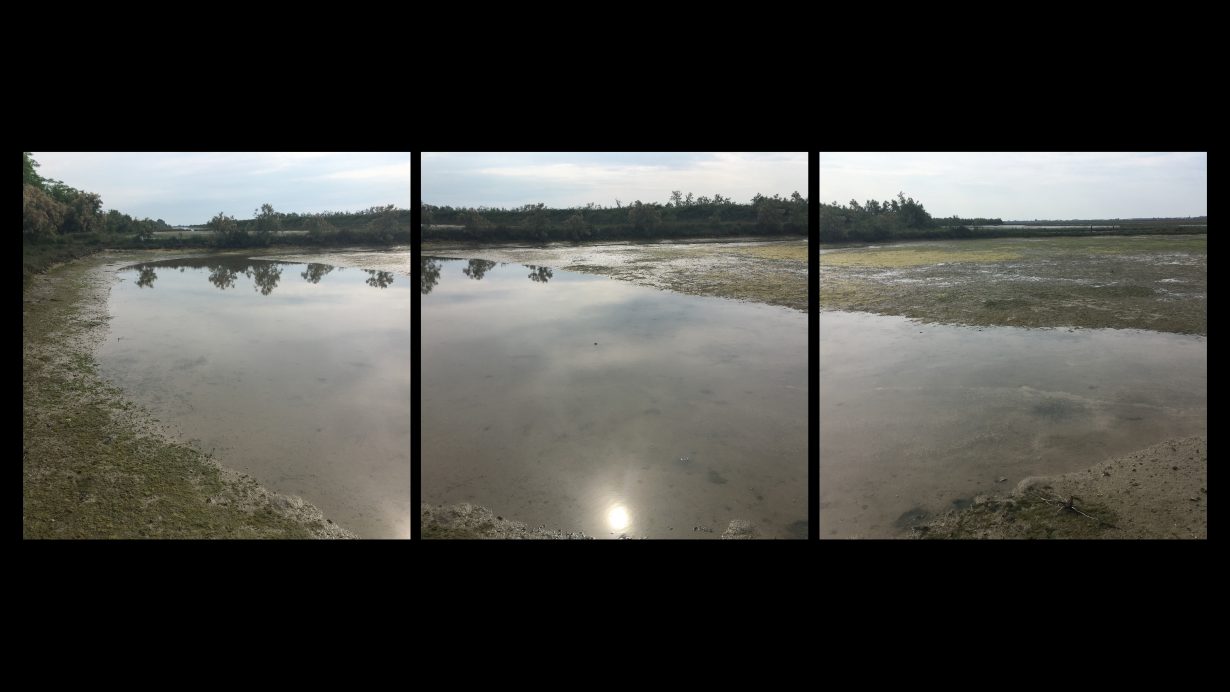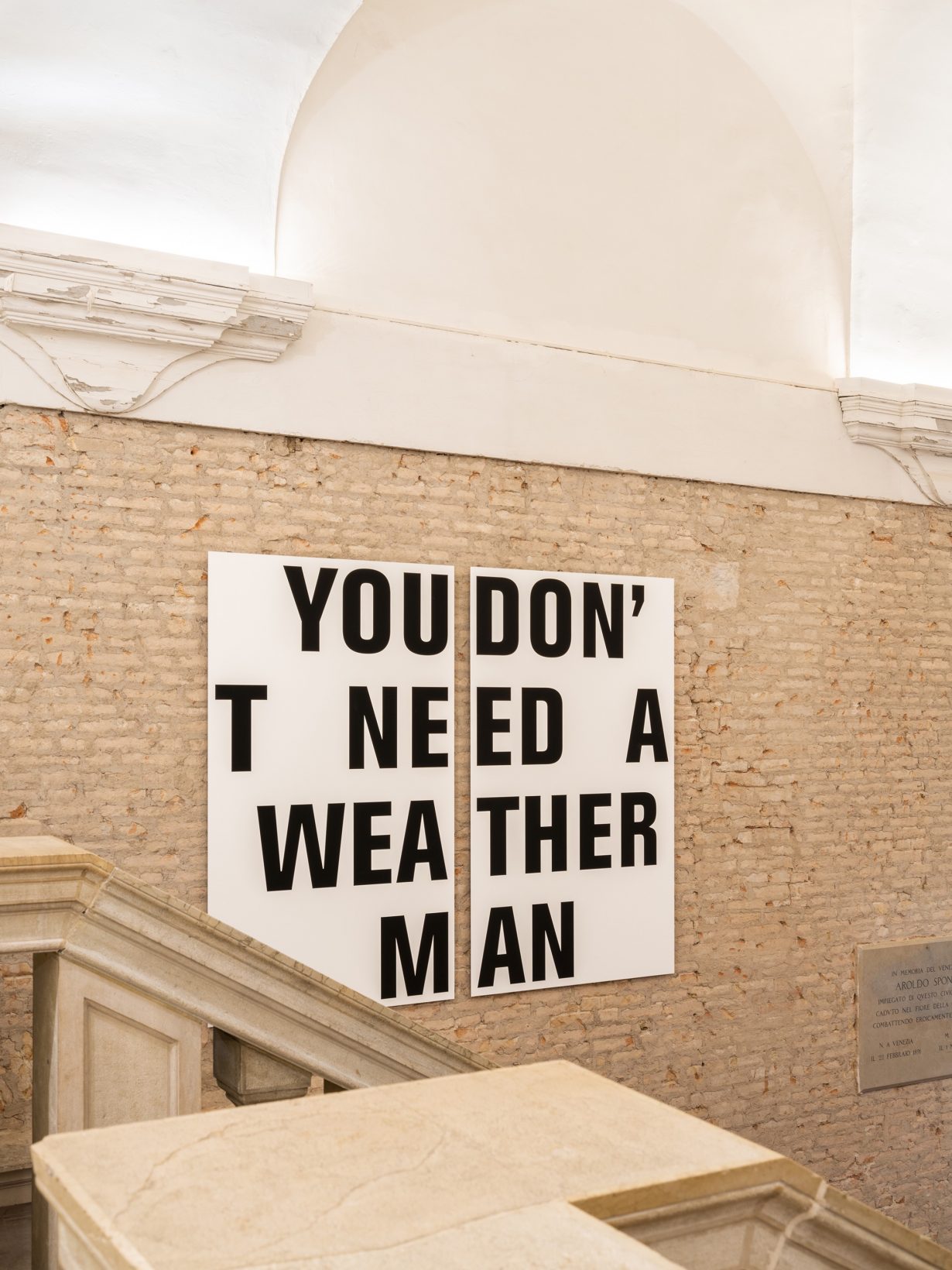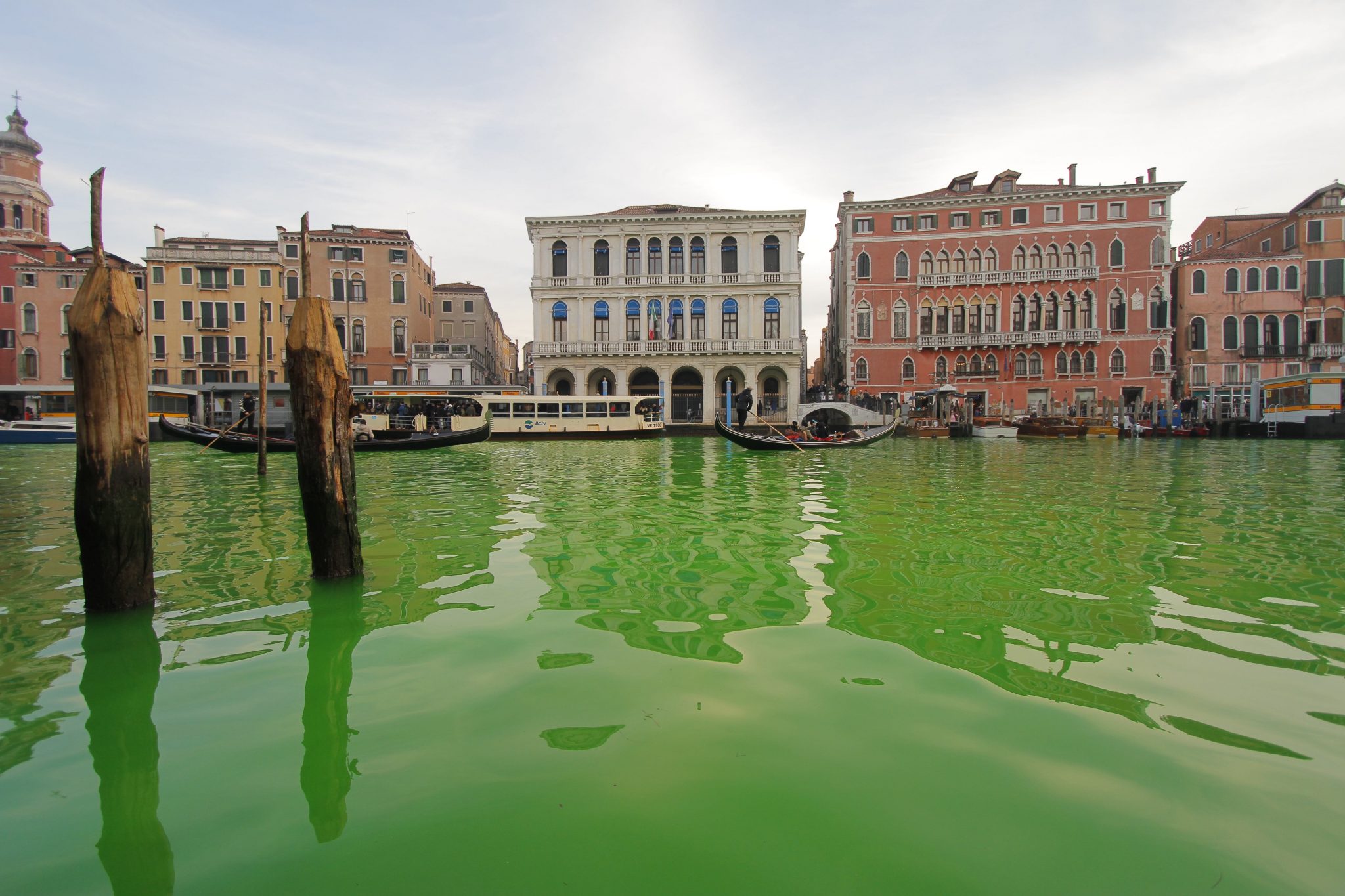The year in ecology: 2023 was the hottest year in recorded history. This is what it looked like from Venice
‘A good practice, preliminary to any other, is the practice of wonder… Look around and let go of the concept of tree, road, house, sea and look with a gaze that ignores the known and sees… A minimal universe opens up. Infinite events, changes, arrivals, departures, smaller and smaller forms as the gaze narrows to notice.’ This is how Italian Buddhist poet Livia Chandra Candiani invites readers to open up to ‘conversations with trees, animals and the human heart’, as her book Questo immenso non sapere (This immense not-knowing, 2021) is titled. It’s a small, dense collection of short stories in which Candiani describes an ecology of daily intimacy and cohabitation with other living beings. Thankfully, 2023 gifted us with a new collection of poems by Candiani, Pane del bosco (Wood’s bread): ‘Arrived has Winter / when I open the door / and ask: “Did I lose you?” / I am open / to wonder’.
How to pay attention to what otherwise goes unseen, and transform it into a reservoir for joy and resistance? In The Extractive Zone (2017), Macarena Gómez-Barris speaks along similar lines of a ‘renewed perception’ (an expression she borrows from Édouard Glissant’s Poetics of Relation, 1990). She defines it as ‘a different form of attention and care, one that blends the way that each of us perceive ourselves with how we perceive the natural world, a cognitive and embodied mode of seeing… a submerged viewpoint, about ways to see what lies within the ecologies all around us’. For her, it is a force capable of moving beyond the colonial divide and the narrative of collective doom labelled as Anthropocene. Not all contemporary cultures and epistemologies across the planet share the same necessity to heal a disconnection from nature, from others and from our own bodies, ‘enabling us not only to escape the gravitational pull of capitalism, but to regain a sense of wholeness in our lives’, as Silvia Federici writes in her often-quoted Re-Enchanting the World (2018). That disconnection is not necessarily universal.

Apologies for turning a brief reflection on this year (the hottest, in recorded history) in ecology into a collection of past, interwoven references: upon re-reading these books, I realised that my understanding had shifted, as a result of praxis. Over the last three years, I had the privilege of living and working in Venice (as curator for the third cycle of TBA21–Academy’s fellowship program The Current and the exhibition Thus waves come in pairs at Ocean Space), in a tangible proximity to rising and falling waters and their multispecies inhabitants. Every day, I saw the tide go up for six hours, then down for the following six; the sea entered and left the lagoon, with more or less perceptible waves and currents, in accordance with seasons, moons, winds, human impact, gravity and accelerating climate change.
Living ‘at the sea’s edge’ (the title for Gómez-Barris’s forthcoming book for Duke University Press) and at the core of the largest lagoon of the Mediterranean basin (a hotspot where climatic changes are accelerating at a rate 20 percent faster than in other area in the planet) pushed me to perceive water as a living element with its own agency, generative power and urgency. It transformed my ways of seeing, writing, curating and ‘thinking-with’. It made me finally question, for instance, the narrowness of adopting terrestrial perspectives on a planet whose three quarters are covered in rising oceans. And by extension, the deranging scope of Western-only perspectives in building narratives and models to describe the climatic crises.
Water makes co-dependency so visible. This year, in early February, a few days of exceptionally low tides (associated with expansive droughts across the world in the winter and spring) dried out many canals and halted navigation, including ambulances. In May, just a few days before the grand openings of the Venice Architecture Biennale and the concurrent, ecologically concerned exhibition Everybody Talks About the Weather at Fondazione Prada, the neighbouring areas of river Po’s delta and Emilia-Romagna region were affected by violent rains and catastrophic floods, causing several deaths and the displacement of 36,000 people, to count humans only. By contrast, the classic Venetian acqua alta (high water) unusually appeared during the summer, while in November, it was only by activating for ten consecutive days the MOSE (the artificial barrier separating the brackish waters of the lagoon from the Adriatic Sea) that the city prevented another record flooding. On December 9, the activists of Extinction Rebellion ‘painted’ the Grand Canal in fluorescein green (as artist Nicolàs García Uriburu had already done in 1968, to raise ecological consciousness) to denounce the failure of COP28, paradoxically orchestrated by the fossil-fuel complex. They did, literally, highlight water, for everybody to see.

In her opening speech for the 2023 Architecture Biennale (titled The Laboratory of the Future), curator Lesley Lokko highlighted the necessity to ‘make language’ for the changes we are immersed in, and to redefine or liquify boundaries between practitioners. I’ve learned so much from the many artists, thinkers and storytellers I’ve worked with during The Current III programme: by means of queer ecologies and pedagogies rooted in walking, talking, cross-disciplinary encounters; recursive actions of togetherness, stemming from an idea of water as hydro common; constructing a local ecological knowledge by listening to community activists, fishermen, amateur birdwatchers or cooks exploring fermentation and metabolism – as much as scientists and scholars. Collective, open platforms for exchanging knowledge, ideas and opportunities for wonder now seem, to me, infrastructures to urgently maintain and protect.
One early morning in late August, I found myself alone at the Lido, swimming in waters filled with thousands of luminescent larvae of sea-walnuts – a species of comb jellies, native to the eastern coast of the Americas, now greatly expanded in many seas, to the point of clogging navigation and the fishing industry. My skin rubbed against theirs, floating in the same acidifying body of water where thousands of human bodies, every year, are left to drown by the brutality of European policies – a connection between toxic algal blooms, jellyfish proliferation and migrations of at-risk-humans I gained thanks to Ala Tannir’s writings and thesis Blood in the water (2017). Above all, I’ve learned from the Mediterraneans that it’s impossible to detach the ecological from the geopolitical, environmental degradation and mass displacement (both human and more-than-human) from systemic violence, colonial oppression and uneven distribution of resources. In her magnificent poem Sea and Fog, Etel Adnan wrote: ‘Some people give their lives for a boat, other would rather swim. And what about the corpses that sharks feast on? Did the belief in resurrection rise from the repetition of the kind of innocence that water induces in the body?’
Barbara Casavecchia is a writer, independent curator and educator. She is the editor of the book Thus Waves Come in Pairs. Thinking with the Mediterraneans (Sternberg Press/TBA21, 2023)
